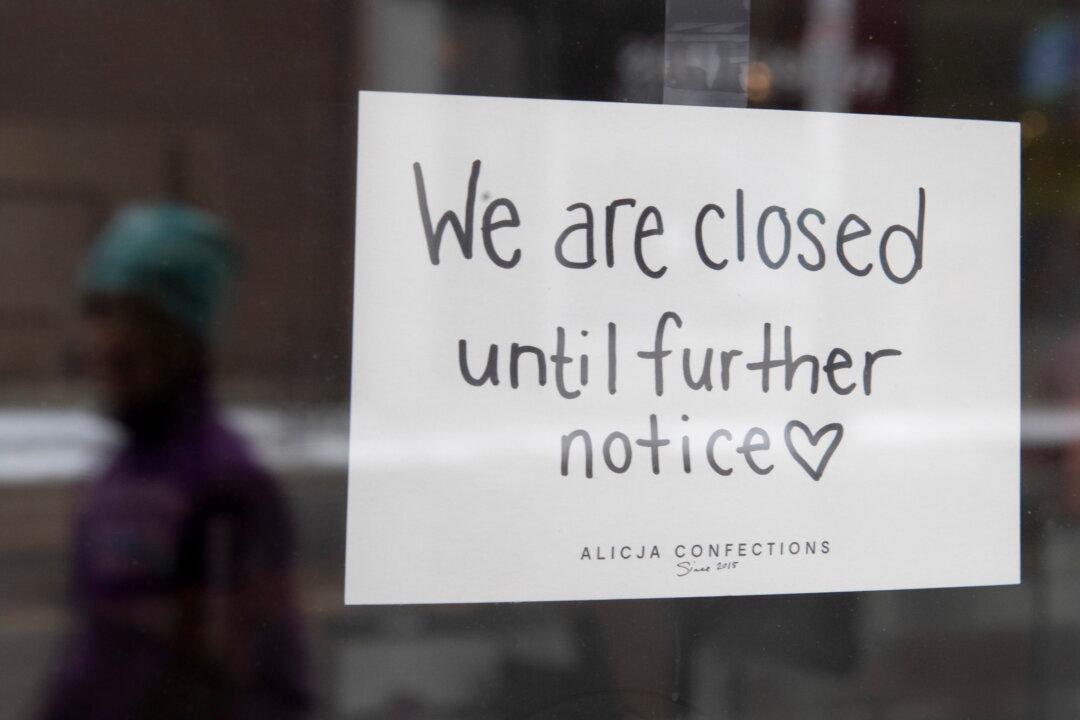The permanent closing of more than 120,000 small and medium-sized businesses can be directly linked to the COVID-19 pandemic lockdowns of 2020, according to a newly released government report.
A Department of Industry report revealed that 120,344 businesses “disappeared” during that time and the overall “rate of business creation sharply declined… to reach a record low of 3.8 percent in 2020.”





